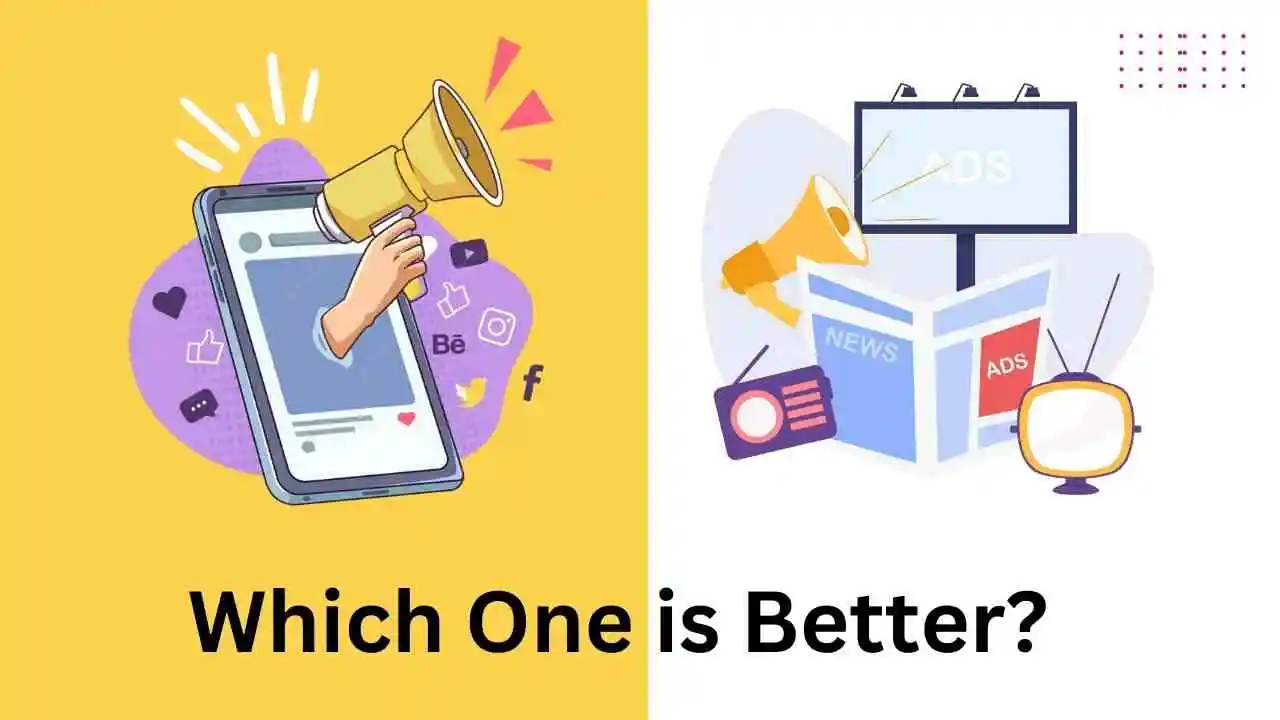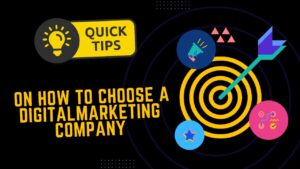It’s no secret that the world of marketing is changing. The days of traditional marketing, like TV and print ads, are numbered. In their place, digital marketing is on the rise. But what does this mean for businesses? Is digital marketing really better than traditional marketing? In this blog post, we will explore the pros and cons of both traditional and digital marketing to help you decide which one is right for your business.
Do you know what is digital marketing & Traditional Marketing?
Do you which marketing term is best for you?
Now!! Firstly we are discussed What is Marketing?
Marketing is an important part of a business. It is all about promoting and selling products and services. Marketing is an organization of selling products on the base of price, the area where it should be supplied to and where should be advertised. A wise entrepreneur will make sure of selling a part of a budget for marketing efforts. As we have two kinds of marketing traditional and digital marketing.
Now we are discussed Traditional marketing.
Do you want to know about traditional marketing?
As the world becomes increasingly digital, many businesses are forced to consider whether traditional marketing is still relevant. After all, why spend money on print ads and billboards when you can reach a wider audience with digital marketing?
However, there are still some advantages to traditional marketing that can’t be ignored. For one, it can be more personal and intimate than digital marketing. You can actually talk to your potential customers and get their feedback in real time.
Plus, traditional marketing often provides a higher ROI than digital marketing. In other words, you’re more likely to see a return on your investment with traditional marketing techniques like direct mail or radio advertising.
So which is better? It really depends on your goals and objectives. If you’re looking for a more personal way to reach your customers, traditional marketing may be the way to go. However, if you’re looking for a more cost-effective way to reach a larger audience, digital marketing may be the better choice.
It is harder to target the audience with the help of traditional marketing. Outlets are delivered to the targeted audiences but it is hard to understand who has read your advertisement and who all the people are interested in it.
Now, we are going to discuss about Digital Marketing?
Do you want to know about Digital Marketing?
Digital marketing is the process of using the internet and digital devices to promote and sell products or services. This can be done through a variety of digital channels, such as search engines, social media, email, and websites.
Digital marketing is different from traditional marketing in a few key ways. First, it’s more targeted. You can use data to find out who your target audience is and what they want, then craft your message specifically for them.
Second, digital marketing is more interactive. You can use tools like website forms and social media to engage with your customers and get feedback in real time.
Third, digital marketing is more cost-effective. Because you can target your audience so precisely, you don’t waste money on advertising that doesn’t reach the right people. And because it’s interactive, you can often get results (like sales or leads) more quickly than with traditional marketing methods.
So which one is better? It depends on your goals and your audience. If you want to reach a large audience with general awareness campaigns, traditional marketing might be a better option. But if you want to target a specific group of people with personalized messages, digital marketing will probably be more effective.
Pros and Cons of Traditional Marketing
There are many pros and cons to traditional marketing. Traditional marketing can be very effective if done correctly, but it can also be very costly.
Some pros of traditional marketing include:
-It can reach a large audience all at once
-It can be very targeted (you can target specific demographics)
-You have more control over the message you are sending
Some cons of traditional marketing include:
-It can be very costly
-It is not as flexible as digital marketing (it is harder to make changes on the fly)
-It can be difficult to measure the results of your efforts
Pros and Cons of Digital Marketing
Digital marketing has a number of advantages over traditional marketing. These include:
- Reach: With digital marketing, you can reach a global audience quickly and easily.
- Cost: Digital marketing is often more cost effective than traditional marketing techniques.
- engagement: Digital marketing techniques allow you to achieve a high degree of engagement with your target audience.
- Flexibility: You can tailor your digital marketing campaigns to suit your specific needs and objectives.
- Measurability: Digital marketing allows you to track and measure the results of your campaigns, making it easy to see what is working and what isn’t.
However, there are also some disadvantages to consider:
- Overwhelming: The sheer volume of information and data available online can be overwhelming for users.
- Impersonal: Some people find digital marketing techniques to be impersonal and intrusive.
- Fragmented: The digital world is fragmented, with many different channels and platforms competing for attention. This can make it difficult to stand out from the crowd.
- Short attention spans: With so much information available, users often have short attention spans and are quickly distracted.
- Competitive: The digital world is highly competitive, and it can be difficult to differentiate your products and services from the competition.
Which One Is Better?
There are many different marketing strategies out there, and it can be hard to know which one is best for your business. Traditional marketing and digital marketing are two of the most popular options, but which one is better?
Traditional marketing generally includes offline methods such as print ads, TV commercials, and radio ads. While digital marketing consists of online methods such as SEO, social media marketing, and email marketing. So, which one should you choose for your business?
Here are a few things to consider:
-Your target audience: Who are you trying to reach with your marketing? Traditional methods may be better if you’re targeting an older demographic, while digital methods may be better if you’re targeting a younger demographic.
-Your budget: How much money do you have to spend on marketing? Traditional methods can be expensive, while digital methods can be very cost-effective.
-Your goals: What are you trying to achieve with your marketing? If you’re looking to build brand awareness or increase sales, traditional methods may be more effective. If you’re looking to drive traffic to your website or generate leads, digital methods may be more effective.
So, which one is better? It really depends on your specific situation. Both traditional and digital marketing have their own advantages and disadvantages. It’s important to evaluate your goals, target audience, and budget before deciding which method is right for you.
Digital marketing is a form of marketing that uses digital technologies to promote a product or service. It can be used in a variety of ways, including email marketing, social media marketing, and search engine optimization (SEO).
Traditional marketing is a form of marketing that uses traditional methods to promote a product or service. It can include print ads, TV commercials, and radio ads.
Conclusion
In the end, it is up to you to decide what type of marketing will work best for your business. If you have a limited budget, then traditional marketing may be the way to go. However, if you are willing to invest in digital marketing, then you will likely see a greater return on investment. Whichever path you choose, make sure that you are putting in the effort required to see results.



